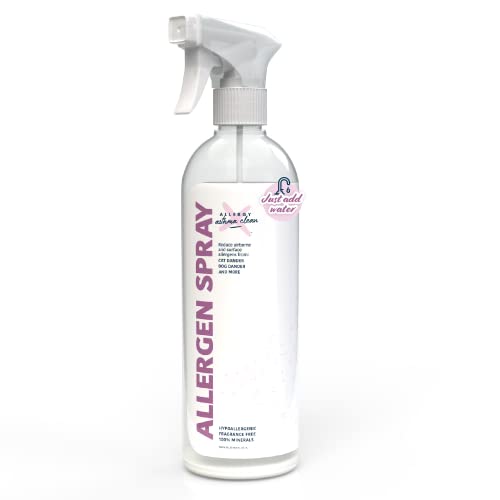For years, people have been debating whether or not dogs can cause asthma. The answer to this question is a little bit complicated. In this article, we will explore the truth about dog allergens and how they impact your health. We will also discuss ways to reduce your exposure to these allergens and keep your asthma under control.
What is Allergic Asthma?
Allergic asthma is a type of asthma that is triggered by allergies. Allergies are caused by your body’s immune system overreacting to a foreign substance, such as pollen, dust, or animal dander. When you breathe in these substances, your airways constrict, and you may experience symptoms like wheezing, coughing, and shortness of breath. People with allergic asthma usually have other allergies as well, such as hay fever or eczema.
Allergic reactions occur when your body mistakes an otherwise harmless substance for a dangerous invader. When exposed to allergens, your immune system springs into action. Immunoglobulin E (IgE) antibodies attach to mast cells —a type of white blood cell— triggering them to release chemicals like histamine into your bloodstream. These chemicals cause the symptoms you experience during an allergic reaction.
Can Dogs Cause Asthma?
Dogs are usually not the direct cause of asthma, but they can be a trigger for asthmatic attacks. However, not everyone who has asthma is allergic to dogs. In fact, only about 15-30% of people with asthma are allergic to animal dander. Animal dander is a type of protein that is found in an animal’s skin, saliva, and urine. When these proteins are released into the air, they can trigger an asthma attack in people who are allergic to them. Dogs produce more dander than any other type of animal, which is why they are one of the most common triggers for allergic asthma.
Pets, including dogs, often carry dust and pollen on their fur. When these particles become airborne, they can irritate the airway and trigger an asthma attack. In addition, some puppies and adult dogs may have dander—odorless scales of skin that commonly provoke allergic reactions—which can also cause asthma symptoms. If you or your child is allergic to dogs but loves them anyway, consider getting a hypoallergenic breed or one that doesn’t shed much fur. Regular baths will help reduce the amount of dander your pet gives off into the environment.
What Asthma Symptoms Can Dogs Cause?
There are several symptoms of asthma that can be caused by dogs, including:
- Shortness of breath
Shortness of breath is the most common symptom of asthma. It is caused by the airways in your lungs becoming constricted and limiting the amount of air that can flow in and out. This can make it difficult to breathe, especially when you are active. Shortness of breath may also be accompanied by chest tightness, coughing, and wheezing.
- Wheezing
Wheezing is a high-pitched whistling sound that is made when you breathe. It is caused by the airways in your lungs becoming constricted and narrowing the opening through which air can flow. Wheezing can be a symptom of both asthma and allergies.
- Coughing
Coughing is a common symptom of both asthma and allergies. It occurs when the airways in your lungs become irritated and inflamed, causing them to produce mucus. Coughing helps to clear the mucus from your lungs so that you can breathe more easily.
- Asthma attacks
An asthma attack is a sudden worsening of asthma symptoms that can range from mild to life-threatening. Asthma attacks usually happen when something triggers your asthma, such as an allergy or infection. During an asthma attack, the airways in your lungs constrict, and you may experience shortness of breath, chest tightness, coughing, and wheezing. Asthma attacks can be very dangerous and even life-threatening if not treated immediately.
If you or your child experiences any of these symptoms after being around a dog, it is important to see a doctor. These symptoms may be indicative of an underlying allergy or asthma. A doctor can perform tests to determine if you are allergic to dogs and help you develop a plan to avoid exposure to them. They can also prescribe medication to help control your symptoms.
How Can I Reduce My Exposure to Dog Allergens?
There are several things you can do to reduce your exposure to dog allergens and keep your asthma under control:
- If you are allergic to dogs, it is important to avoid contact with them. This includes both direct contact, such as petting or being around them and indirect contact, such as breathing in their dander. You may also need to avoid areas where dogs are commonly found, such as dog parks or pet stores. If you must be around a dog, try to stay away from its fur and dander as much as possible.
- It is important to wash your hands after petting a dog, even if you are not allergic to it. Dogs can carry dust and pollen on their fur, which can aggravate asthma symptoms. Washing your hands will help remove any allergens that may have transferred from the dog to your skin.
- One of the best ways to reduce your exposure to dog allergens is to keep your home clean and free of pet hair and dander. This includes regular cleaning of all surfaces, including floors, furniture, and walls. It is also important to vacuum regularly, especially in areas where pets spend a lot of time, such as the bedroom and living room. You can also buy a vacuum cleaner that has a special filter designed to trap allergens, which will help keep your home free of pet dander.
- If you are allergic to dogs, you may want to consider getting a hypoallergenic breed of dog. Hypoallergenic breeds of dogs are those that shed very little fur and produce less dander. This will help reduce your exposure to allergens and keep your asthma under control. Examples include the Maltese, Poodle, and Miniature Schnauzer. Hairless breeds such as the Chinese Crested and Mexican Hairless are also good choices for people with allergies.
Our Final Thoughts
While dogs can cause asthma, the good news is that there are ways to reduce your exposure to allergens and keep your asthma under control. If you have allergies or asthma, it is important to see a doctor so they can help you develop a plan to avoid exposure to dogs and keep your symptoms under control.












